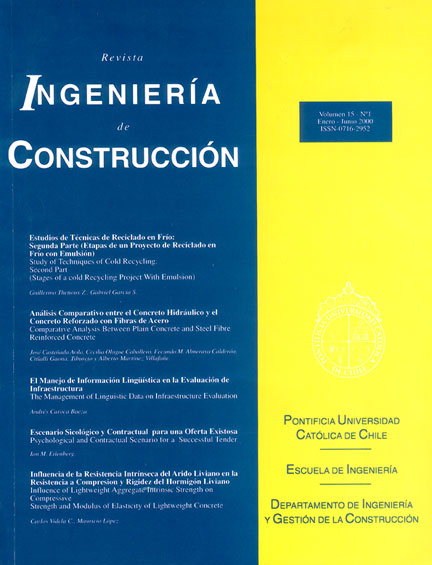Influence of lightweight aggregate intrinsic strength on compressive strength and modulus of elasticity of lightweight concrete
Keywords:
lightweight aggregates, compressive strength, modulus of elasticity, aggregates' strength, mechanical properties expressionsAbstract
Lightweight concrete has been used in many applications since the second half of the XX century and has become a very good alternative compared with conventional concrete. However the development of its technology has not been enough because the related studies have been focused mainly to resolve particular cases. This research seeks to generalise the knowledge about this type of material. The main objective of this project is to study the effects in mechanical properties, of the replacement of the conventional coarse aggregate with a lightweight one. Lightweight aggregate concrete may be conceived as a two – phase material: a “ resistant phase” constituted by normal mortar (cement paste and natural sand) and a “lightweight phase” formed by the lightweight coarse aggregate. The resistant phase gives the structural strength and the lightweight phase reduces the concrete’s density. In this way it would be possible to describe the mechanical behaviour of concrete in relation to parameters of lightweight aggregate and the cement paste. An extensive experimental programme was carried out, including 47 trial mixes, in which the type and proportion of each one of the phases were varied to analyse the principal factors directly affecting the lightweight concrete mechanical properties. The obtained results allow for the proportion of relationship between the compressive strength and modulus of elasticity of lightweight concrete and its proportioning variables (mix design). At the same time, an easy measured index is proposed to characterise the structural capacity of lightweight aggregate, this index allow estimating the potential mechanical properties of concrete which can be obtained using a determined aggregate.


